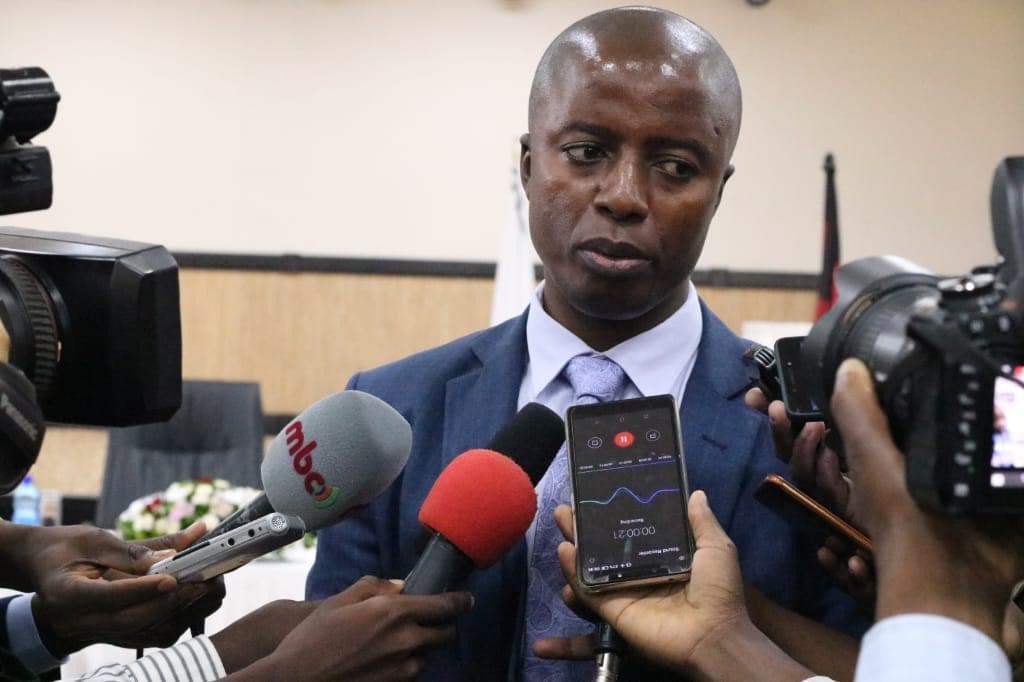Africa-Press – Malawi. Concerned with a greater number of people not willing to take the ravaging Covid-19 jab, the Malawi Electoral Commission (MEC) has ordered its employees not to report for work if they are not vaccinated for Covid19.
MEC is the first first public institution in the country to enforce a no vaccine, no work policy at work. The electoral body’s Director of Media and Public Relations, Sangwani Mwafulirwa, says this applies in all the MEC officers in the country.
“All those not vaccinated have been advised to stay home and come when vaccinated,” he says.
Mwafulirwa says it is the stand of the Malawi Electoral Commission that there are many benefits of getting vaccinated; and the decision has been made in the best interest of the employees.
“If everybody is vaccinated then it means that everyone is safe and protected. It is important for everyone to be vaccinated as this is only defence mechanism against the pandemic.
“Therefore, the Commission’s stand is to encourage all employees get vaccinated so they are protected but also protect others,” said Mwafulirwa.
The Malawi government recently announced it will start inoculating its citizens with several COVID-19 vaccines in an effort to protect more of its population amid growing coronavirus infections.
Health Minister Khumbize Kandodo Chiponda said the extra vaccine is necessary to fill a gap. Kandodo Chiponda says the COVID-19 vaccines Malawi has added include Pfizer, Johnson & Johnson, Moderna, Sputnik, Sinovac and Sinopharm.
The health minister, who also is the co-chairperson of the Presidential Task Force on COVID-19, said the country is expected to receive a donation of 300,000 doses each of the Pfizer and Johnson and Johnson vaccines in early August.
Malawi stopped vaccinating its citizens in June when it ran out of the AstraZeneca vaccine. In May, Malawi destroyed about 20,000 doses of AstraZeneca vaccine, which expired in April.
The incineration was largely because many Malawians were reluctant to be vaccinated due to concerns about the vaccine’s safety and efficacy. Malawi is expected, however, to receive a fresh consignment of 192,000 doses of the AstraZeneca next week.
But Kandodo said the vaccine will be restricted to unvaccinated health workers and those who already have a single dose. “We know there are a lot of people who are now willing to take the jab. But bear with us, other vaccines are coming,” said Kandodo.”
She added: “And the importance of Johnson & Johnson’s is that it’s a single dose vaccine. So, those who have never taken any vaccines will take these Johnson & Johnson’s vaccines.”
Kandodo said the problem Malawi is facing, though, is not about money to buy the vaccine but where to find it. She said the Malawian government has just received about $30 million from the World Bank to help purchase COVID-19 vaccine. Experts are warning the country needs to be ready to store and distribute it.
In May, authorities burned about 20,000 expired doses of the AstraZeneca vaccine that went unused due to a shortage of distribution centers and widespread vaccine hesitancy, the latter caused by myths and misinformation about their safety
So far, Malawi has recorded about 51,000 cases of COVID-19 and nearly 1,600 deaths. Only a tiny fraction of the country’s 18 million people have been inoculated, though that number will quickly rise if more people cooperate with the government’s vaccination campaign.






